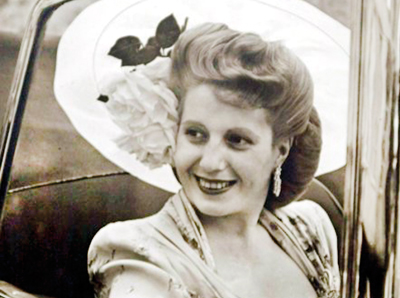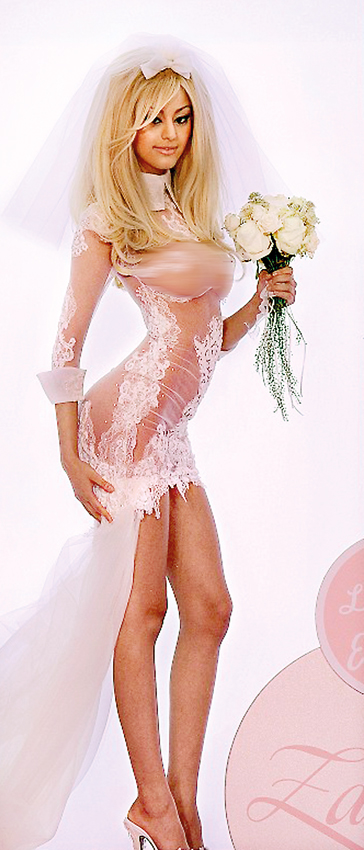Sunday Times 2
Evita’s life and legacy
View(s):Eva Peron, the flamboyant Argentine First Lady, died 60 years ago. But her influence lives on as an inspiration to some and as a celebrity icon. It is a divisive legacy.†Many families in Argentina have a tale to tell about Evita, a young woman from a poor family who rose to prominence as the second wife of President Juan Peron.

Evita’s appeal transcended politics. (Pic Reuters)
“I saw her in the lift in Congress and she held my hand. I told her she meant everything to me, ” recalls 88-year-old Clementina Beba Gill, her blue eyes lighting up with pride.Ms Gill went on to work with Evita on the women’s suffrage campaign in the 1940s.
“That strength has stayed with me ever since. She called us her girls.”But not everyone supported Evita.
For many in the military and in the middle and upper classes she embodied anti-democratic populism, someone who used her position as first lady to further her own ambitions.
“In my family almost everybody was anti-Peronist, so Evita was usually portrayed as a capricious dictator’s wife,” says sociologist Florencia Lajer. “From the things I heard at home, Peronism was a synonym of demagogy and corruption.”
Santiago Regolo, a researcher at the Buenos Aires Eva Peron Museum, heard deeply contrasting views.
His grandmother believed that she owed her teaching career to Evita, who funded the construction of schools.
His grandfather, however, helped overthrow President Peron in the 1955 military coup.
“My mother never forgave her father for being a part of the coup. It brought a distance between them. Even when he died, she never forgave him,” said Mr Regolo.Maria Eva Duarte de Peron was raised in poverty in rural Argentina. At 15, she went to Buenos Aires to pursue an acting career.
Several years later, she met Col Juan Domingo Peron. They married in 1945 and a year later he was elected president.
As First Lady, Evita oversaw a wide range of projects, including the building of schools and children’s hospitals. She also worked to obtain better conditions for workers and the poor.
Paris couture
Evita’s appeal transcended politics.Dr Victoria Soroa was eight when she was invited with a schoolfriend to the Perons’ residence for a party.”She was very pretty,” says Dr Soroa. “I remember her blonde hair always tied in a tight chignon and she was beautifully dressed. It was like being in castle. It was a privilege to meet her, even if you do not like the way she did things.”
Evita’s hair style became her trademark. Her fashion sense was inspired by Paris couture and top international designers. Waist-hugging Dior dresses were a favourite.Critics questioned her passion for high fashion but many of the poor saw her elegant beauty as inspirational.
The Evita Museum, in the fashionable and quirky district of Palermo in Buenos Aires, is now home to her many ball gowns, portraits and memorabilia. The museum itself is housed in the mansion that was once a shelter set up for single mothers by Evita.
Evita’s influence did not end with her death in 1952 and today her legacy remains a real presence, politically and culturally.Comparisons between current Argentine President Cristina Fernandez de Kirchner and Eva Peron are commonly made.
But some argue that being vibrant orators and followers of fashion is where the similarity ends.Ms Fernandez’s middle-class upbringing is very different to the poor rural beginnings of Eva Peron.”Today we have a president who emulates Evita,” says Mr Regolo. “It’s impossible to think of a woman being president without Evita.”
Memorabilia
A grand mural of Evita’s face decorates the city’s social development ministry while tourist shops overflow with Evita memorabilia, nestled next to the postcards and fridge magnets of Maradona and tango dancers.
Decades on, Evita’s life story and the sincerity or not of her political ideals remain passionate talking points.
“My grandmother still talks about Evita with tears in her eyes, claiming she was the only politician to ever care for people,” says 27-year-old Mariana Marcaletti.
“Personally, I don’t see Evita as a role model. I acknowledge she was important for women in my country, but I am not sure whether she actually cared about people, or if she used them for political gain.”For Mr Regolo, the former first lady’s compassion is in little doubt.
“She was protector, a friend, a mother of the working class that were almost forgotten by governments before. And she was never a politician, she was Evita.”
(Courtesy BBC)
comments powered by Disqus
























